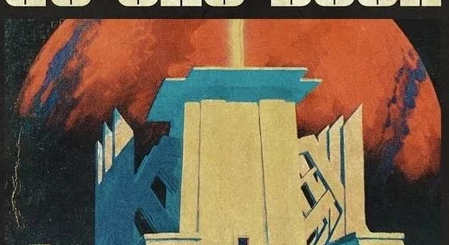Call Me Back by The Strokes Lyrics Meaning – Unraveling a Tale of Anticipation and Modern Disconnect
Lyrics
I can hardly sit
No one has the time
Someone’s always late
I look for you
And you look for me
Whoa, oh, oh, oh
I don’t know why
I came down
I hold your phone
Don’t wake up
I hear a voice
In the ground
Tell me, don’t tell me, the hard part is telling you
Something that you would not like me to tell you
Tell me, don’t tell me, the hard part is telling you
Something that you would not like me to tell you
Wait time is to blame
Mapped out fame’s a trip
We all have the time
Someone’s always fed
I look for you
And you look away
Oh, oh, oh, oh
I don’t know why
I came down
I hold your phone
Don’t wake up
I hear a voice
In the ground
(Waking up is so much fun to do) tell me, don’t tell me
The hard part is telling you
Something that you would not like me to tell you
(An ’80s movie make-out party with you) tell me, don’t tell me
The hard part is telling you
Something that you would not like me to tell you
In the labyrinth of modern relationships, peppered with digital distractions and emotional detours, The Strokes offer a soundtrack to our disquiet with ‘Call Me Back.’ The track, nestled within the band’s 2011 album ‘Angles,’ acts as an aural mirror to the soul’s craving for connection in a world brimming with busy signals.
Peeling back the layers of its deceptively simple melody, ‘Call Me Back’ reveals existential depths. The song encapsulates the agony of waiting and the frictions of communication in an era where technology both bridges and widens the chasm between human hearts.
The Torturous Tick of Time: Dissecting the Wait
The opening lines, ‘Wait time is the worst / I can hardly sit,’ set a restless scene where time’s lethargic drip is a mental adversary. This is not just about the minutes spent staring at a phone, but about the suspension of life itself in anticipation of another person’s acknowledgment. The Strokes paint a portrait of impatience and its corrosive effect on the psyche.
This opening line speaks volumes about the human condition in relation to technology and expectations. It’s a cunning nod to the anxiety of unread texts and unanswered calls, capturing the agonizing limbo that has become an emotional mainstay of contemporary culture.
Behind the Beat: Analog Yearning in a Digital World
The song’s minimalistic arrangement is a canvas for emotion, reminiscent of a different era when delays were more often due to missed connections than ignored messages. By choosing to underlay their message with subtle instrumentation, The Strokes invoke a narrative that is both a throwback and a prophecy.
‘Call Me Back’ extends an invitation to explore the duality of technology—its power to connect us instantly and to alienate us just as fast. Through the poignant simplicity of their music, the band peers into the paradox of modern communication.
Echoes of Silence: ‘I hold your phone / Don’t wake up’
Likely the song’s most haunting lines, these lyrics express a moment steeped in contradiction and resignation. It’s a vivid picture of intimacy and distance, of holding someone’s means of communication but being shut out in silence.
The phrase taps into a deep-seated fear of the digital age: the possibility that our messages, emotions, and very essence could be held hostage by a device that might never resonate with the reply we yearn for.
Unspoken Words: The Song’s Hidden Meaning
At the core of ‘Call Me Back,’ there lies a veiled conversation about creating and navigating boundaries. ‘Tell me, don’t tell me’—the song’s central refrain—encapsulates the fraught dance of knowing and not wanting to know, of the peril in delivering truths that might rend the fragile fabric of a bond.
Beneath the surface, The Strokes confront the fear of authenticity and its repercussions in relationships. They question the courage it takes to bridge the gaps in communication and whether some chasms are willingly left untraversed.
Unveiling Vulnerability: ‘Something that you would not like me to tell you’
In these climactic lyrics, frontman Julian Casablancas treks across the perilous terrain of vulnerability. Here the song twists into a confessional; a quiet admission that truth-telling is both the balm and the blade in human connection.
These words, repeated with a hesitant fervor, lay bare the emotional stakes. They embody the risk of transparency, echoing the uncertainty of facing another’s reaction and the gamble of genuine intimacy in an age that often favors the superficial.








